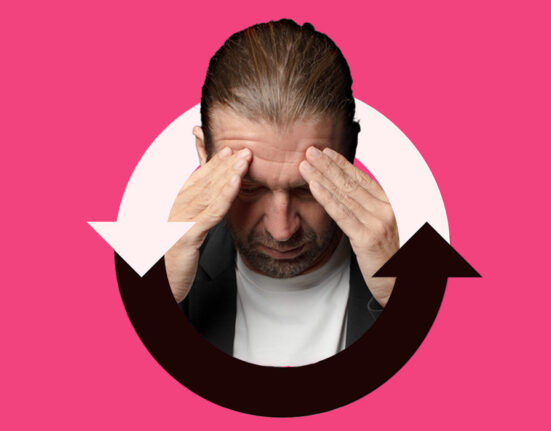Losing a loved one, especially your life partner, can bring about trauma and survivor’s guilt to a person. The fear of not being able to function and exist independently is the major fear and thought pattern in most people who witness losing their life partners. Existential guilt is the internal struggle we have when we fail to live the special life we were destined to lead, a life that is in line with our values, aspirations, and potential, as opposed to moral or distraught guilt (such as stealing or cheating). Fry (2001) investigated the distinct role that important existential issues have in predicting older persons’ psychological health when a spouse passes away. The findings indicated that existential issues play a significant role in older persons’ psychological health after losing a spouse.
Read More: Humanistic and Existential Psychology: Foundations, Philosophies, and Contributions
The Duality of Awe and Dread
Awe (the marvel of being alive) and dread (the unavoidable truth of death) are both brought on by the unique consciousness of existence that humans possess. According to Kierkegaard, death anxiety is a profound fear that frequently manifests during times of loss, disease, or significant life constraints. It is rooted in this “struggle of being against non-being.”
Anxiety, Shame, and Culture’s Function
The fear of dying and the sense that one hasn’t lived a whole or genuine life, what existentialists refer to as existential guilt, are frequently associated with Kierkegaard’s concept of Angst, which encompasses both anxiety and rage. According to psychologist Ernest Becker, people create cultural systems, meaning systems that offer self-worth through adherence to cultural ideals and guarantee symbolic or physical immortality as a defence against death dread. Death fear frequently increases as life draws to a close. By emphasising life review, forgiveness, fulfilling life tasks, and acceptance, existential approaches to care assist people in finding purpose in dying and finding peace with their lives.
Read More: What is Existentialism?
The Weight of Unlived Life and the Arc of Loss
A person’s perceived life arc, i.e the projected future moulded by friendship, shared aspirations, and mutual development, is also upended by the loss of a life partner, in addition to their everyday experience. People frequently suffer from a serious identity and meaning rupture when such a common path is abruptly broken. This upheaval can lead to existential despair, a deep sadness rooted in both absence and the awareness of unfulfilled or unrealised aspects of existence, according to existential psychologists. Existential guilt may also accompany the loss of a partner for many people, especially those in their midlife or younger:
- “What we started was not completed.”
- “I didn’t keep them safe.”
- “We had a lot more life to live together yet.”
Read More: Death Across Cultures and What We Can Learn from Them
The Fear of Not Being and Loneliness
The fear of loneliness, not just loneliness, but a sort of ontological loneliness, is another significant effect of losing a life partner. It is the feeling of being abandoned, free in a world that no longer seems familiar. The companion who listened to one’s tale, who experienced both the ordinary and the extraordinary, is no longer there to mirror that identity. As a result, there may seem to be a gap in one’s identity. This may result in a weakened feeling of identity, being lost in daily activities, steering clear of future-focused thinking, and heightened concern for one’s death. The surviving partner frequently starts thinking about their mortality with a mix of anxiety, preparation, and ambivalence rather than morbid fascination.
Death Anxiety: A Multidimensional Understanding
By portraying death anxiety as a complicated construct with multiple dimensions and levels of awareness, as opposed to a solely defined single dimension of concern, Florian and co-authors have advanced the study of death anxiety. They are advancing intersectionality between Terror Management Theory (TMT), which regards death reminders as stimuli that generate a wide variety of psychological effects, and Thanatos psychology, which interprets fear of death as the result impacted by a multitude of variables. Florian’s approach will expand both lines of theory and will explain how the various facets of fear are impacted by other variables, in addition to impacting how people act upon reminders of death, allowing for a more holistic understanding of death anxiety.
Read More: Psychological Changes after the Death of a loved one
Finding Meaning and Purpose: Proactive Pathways
Finding meaning and a sense of purpose in life isn’t just luck; it’s a process. Introducing three evidence-based practices to help individuals regain a self-understanding, roughly align their values, and cultivate lives infused with meaning and purpose.
1. Life Crafting: A Plan for a Purposeful Tomorrow
Schippers, & Ziegler (2019) introduced Life Crafting, which is a structured, positive psychology intervention that encourages individuals to clarify their values, envision a future self they desire, and create a pathway for developing this self.
The Life Crafting Intervention is a 7-step process
- Reflect on your passions, as well as your core values, ones that are most important
- Recognise your strengths, habits, and skills
- Identify your current and desired social relations
- Explore your current and preferred future workforce
- Imagine ideal and less ideal future possibilities
- Establish meaningful goals and if-then action plans
- Make a public commitment to your respective goals
Life Crafting empowers people to take control of their lives and guide them toward meaning and alignment.
2. Practice Gratitude: Reframe and Restore
Gratitude serves as a psychological reset for individuals experiencing challenges that seem insurmountable or have become disorienting in their world. Emmons & Shelton (2002) indicate practising gratitude enhances well-being by allowing the individual to recognise and relish the good things, even in a debacle. Gratitude is about perspective and not avoiding the truth. When we take a position of gratitude and start thinking about what we are grateful for, we can find meaning in our past experiences, including the painful ones, which can dramatically improve our emotional equilibrium and resilience.
3. Develop a Growth Mindset: Accept the Process
When we are experiencing existential distress, our viewpoint tends to become constricted and rigid. A growth mindset is vital for psychological flexibility because it recognises that we can learn, adjust to change, and grow. Kossowska et al. (2020) state that being open-minded broadens our perspective on difficulties, which in turn lowers existential dread. Using growth mindset techniques, such as reinterpreting setbacks as opportunities, can restore agency and direction.
Read more: Grief, Growth, and Resilience: The Psychological Effects of Dark Tourism
Conclusion
The reality of losing a life partner is enormously painful, uprooting the very foundations of identity, meaning and direction. It brings along with it the horrors of the existential void, together with alienation and guilt. But there is also the healing potential that exists within this suffering, not through eliminating the pain, but through finding direction for it.
Through introspection and reflection upon practice, imagining a life creating, focusing on gratitude, and producing a growth mindset, people can begin to self-empower, restore order to their lives, and find their sense of self and meaning. It is possible to not only endure the absence. But use it as a catalyst for deeper knowledge, strength, and eventually, transcendence. When one is able to approach death and loss with openness and compassion.
References +
Breitbart, W. (2017). Existential guilt and the fear of death. Palliative & Supportive Care, 15(5), 509–512. https://doi.org/10.1017/s1478951517000797
Fry, P. S. (2001). The unique contribution of key existential factors to the Prediction of Psychological Well-Being of Older Adults following Spousal loss. The Gerontologist, 41(1), 69–81. https://doi.org/10.1093/geront/41.1.69
Peterson, G. L. (2006). Greenberg, J., Koole, S. L., & Pyszczynski, T. (Eds.), Handbook of Experimental Existential Psychology. New York, N.Y.: The Guilford Press, 2004, vi + 528 pp., (Hardcover). Journal of Phenomenological Psychology, 37(1), 151–155. https://doi.org/10.1163/15691624-90000014













Leave feedback about this